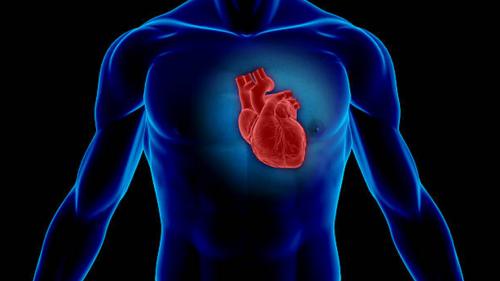Angina: A Warning for your Heart

If
you feel a squeezing pain in your chest, left arm, jaws, shoulder, back or
neck, it might be Angina. These
are common symptoms of Angina,
which lasts for a few minutes and can be relieved with the aid of medication or
rest. You must be aware that angina
symptoms are a warning for your heart’s health. If you do not seek
proper medication in due time, angina
symptoms can also lead to a massive heart attack.
Causes of Angina
When
your heart does not receive the proper flow of oxygen-rich blood due to
coronary blockages or narrowed arteries, you start getting symptoms of angina. You may feel it
while exercising or at times of immense stress. Extreme temperature conditions,
overeating, alcohol, and smoking habits can also lead to Angina. In some cases, angina also shows signs of nausea,
light-headedness, and over-sweating.
Difference between Angina and
Heart Attack
In
both cases, your heart is deprived of enough oxygen due to reduced blood flow in your arteries. The only difference is that
angina is not a disease. It is instead a condition. With angina, there isn’t any permanent
heart damage. But in case of a heart attack, a lack of blood flow persists, and
chances of severe heart damages are high.
Types of Angina
Two
of the most common types of Angina
are Stable Angina and Unstable Angina. If you feel
uneasiness and pain while doing certain specific activities such as exercising,
eating, or stressing, it is called stable
angina. But if your chest pain doesn’t occur for one particular reason,
yet occurs more frequently and for longer times, most likely, it is a problem
of unstable angina. It can also
happen while resting.
Lifestyle changes for Angina
treatment
If you take special care of your lifestyle after being affected by Angina, it might be of great help to you in the longer run. Doctors recommend the following lifestyle changes to keep Angina symptoms from not surfacing any further.
- No smoking and drinking alcohol
- Controlling the high blood pressure, cholesterol and diabetes levels
- Maintaining a healthy weight
- No overeating
- Appropriate exercises depending on individual needs
- Avoid consuming foods that trigger Angina
- Stress management
Things to do to cure Angina pain
Prescribed
medicines are the best remedy to treat Angina.
The goal is to improve blood flow in your body, and in that light,
Nitroglycerin is a suitable medication to widen the blood vessels, and
increasing the blood flow in your heart. Beta-blockers which lower your heart
rate and calcium channel blockers, which trigger increased blood flow can also
be used. Alongside, taking an aspirin every day can also help in curing chest pain.
Treatment for severe Angina
Severe Angina makes your heart prone to higher risks of damage. However, if treated at the right time, you can fight the consequences well in advance. Let’s tell you how!
- Angioplasty – It opens up your arteries to improve blood flow, thereby relieving you of lingering chest pain.
- Bypass surgery – Grafting a blood vessel onto a blocked artery to bypass a blocked section can also help improving blood flow to your heart.
- Transmyocardial revascularization – In this procedure, tiny holes are created in your heart with laser technology. This relieves you of chest pain.
Remember,
angina symptoms are a warning
for your heart. So, before things get worse, it is best to visit the paramedics
at the earliest.
Reference Source:
https://www.stfrancishealthcare.org/blog/2017/february/angina-a-warning-for-your-heart/
Post Your Ad Here
Comments